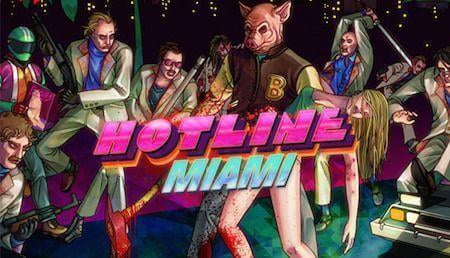We All Want More Exciting Retro Video Game Sequels!

A gloriously old school trailer was recently released for Strafe, a Kickstarter first-person shooter set in space that insists that upon its 2016 release it will be by far the best game of 1996.
Strafe harnesses modern computing power
To (partially) procedurally generate FPS levels that look and feel like Doom (or Halo if it was made by id Software in the mid-90s). Whether Strafe ultimately hits its Kickstarter goal, it is representative of the continuing expansion of retro indie games that mix nostalgia with modern conveniences and flourishes.
Strafe’s blood and gore are persistent, for example, so you know if a corridor isn’t covered in guts, that you probably haven’t been there yet. That’s a trick based on modern processing power in a game designed to look twenty years old. And it illustrates the great trick of good retro design: figure out what aspects of the old games are worth honoring and recreating, while adding something fresh that doesn’t feel out of character.
Designers can, of course, go completely old school and simply make a game that could have been made and played on 80s or 90s computers. Many of the new batch of graphic adventure games like Yesterday or Gemini Rue feel this way—they run fine on my phone, and they probably would have run alright on my 486 in ’95 alongside The Secret of Monkey Island and Sam & Max Hit the Road.
But “more of the same” only thrills for so long.
There’s a reason games didn’t stay the way they were in 1995, or 2003, or 2008. It’s not because they weren’t making great games—it’s because we like to be surprised and challenged. This is why sequels and endless series games get ripped on. Call of Duty: Black Ops Cold War wasn’t as exciting as the first two because it didn’t break much new ground.
After a while, though, that old magic respawns!
The old experience becomes tinged with nostalgia, and a genre and moment are ripe for retro rediscovery. The best of these, in my opinion, are games that feel like you could have played them back in the day that nevertheless offer you some new twist that you never had when those games were new.
rediscovery. The best of these, in my opinion, are games that feel like you could have played them back in the day that nevertheless offer you some new twist that you never had when those games were new.
Some new twists in retro-style game are quite clear.
Take Fez, for example. Phil Fish’s game emulates an old 2D puzzler (rife with bonus hard-to-find Easter eggs and codes) with the literal twist of being able to spin from one 2D view to another to explore a 3D world only visible two dimensions at a time. Then there’s Braid, whose design emphatically echoes that of Super Mario Bros., with its princess eternally in another castle, but uses this to set up a narrative finale that is anything but traditional, achieved through puzzle-platformer gameplay that is both simple and sometimes maddeningly challenging…especially if, like me, you’re color-blind and don't realize that some of the puzzles are color coded. FYI, color-blind gamers (and developers who don’t make manuals).
Then there are games
Like Hotline Miami, that look and feel old school but clearly depend on modern processing for a smoother flow of action and fewer limitations on how much can be going on in the game at any given time (and how many different player characters are offered, etc.). Games like this generally keep the look and feel of an old game, along with the punishing difficulty, while removing some of the technical limitations on scope, flexibility, and customizability. Meanwhile, in 2013’s Gaurodan (free to download for Windows and Ouya), you get a Rampage-like experience of being a giant pterodactyl monster (birthed from a volcano as a giant egg) wreaking havoc on the world because you can. But while this free indie title doesn’t do anything technically that I couldn’t see being possible in 1990, it offers more than pure retro nostalgia by blending two old genres—the rampager (is that a genre? It is now) and the side-scrolling shooter—in a new way.
We need more games like
Braid and more games like Hotline Miami—games that develop the gameplay of classic genres as well as those that simply enhance them with modern processing power and game size to enable greater customization and depth. Game Informer recently compiled a list of 16-bit games that could use sequels in the Hotline Miami vein (including Earthbound, Contra, Final Fantasy, Metroid, and Mega Man). I think this makes sense. Square can make new Final Fantasy games, too (XV looks like it might actually have a chance to be good after the disappointment-after-soulless-disappointment that was the XIII era), but why not also give us a renovated 16-bit style version?
It doesn’t have to be VI-2, but how much would it cost Square today to put a small team together to make a perfect 16-bit RPG? Not nearly as much as it would make them, I’d wager. And a small team might not have to deal with the game-design-by-committee approach to AAA titles that I think has dragged this once-great series down over the past several years. Since the release of FFX in 2001, 2006’s FFXII has been the only enjoyable thing Square’s done with the series, in my opinion. It’s been a long 14 years! So why not put small teams on rethinking retro? For a fraction of the cost of a blockbuster, major developers could get in on what indie companies have been doing well for quite some time.
What do you think? What games and old genres would you like to see reinvented a la Fez? Expanded and deepened like a retro Final Fantasy? Remixed like Gaurodan?

Comments